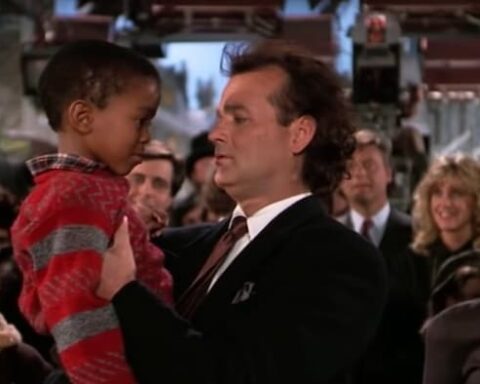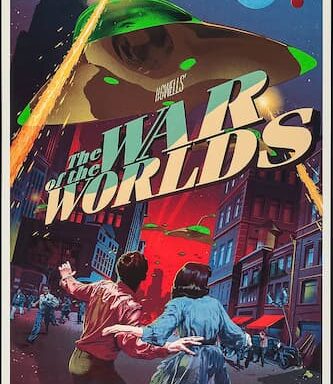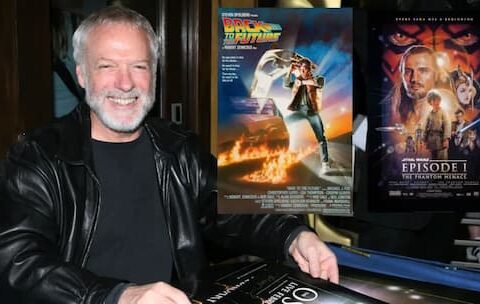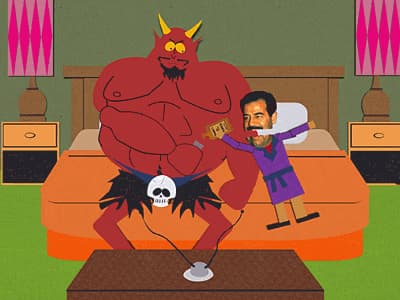As I didn’t write anything about Avengers: Endgame at the time of its release, I figured that now – upon my second viewing of the film – would be a good time to reflect on what was such a huge movie event this year and such a landmark event in comic-book movies in general.
It’s very difficult to be negative about Avengers: Endgame – or to drift away from praise of the overall vision and impact and into nitpicks and criticisms.
Endgame is not perfect: there are things about it I find unsatisfying.
For one thing, I feel there should’ve been a scene showing Doctor Strange, Spiderman, Quill, etc, returning to reality (on Titan, where we left them in Infinity War before the snap: and trying to understand what had transpired and what now needed to happen, etc. I get why we instead just wait for the big dramatic moment of all the characters returning via the portals and arriving on the battlefield: but my feeling is that something was missing in the narrative and we needed an earlier scene showing some of the ‘return’.
Also – and I wouldn’t go so far as to call them plot-holes – there’s a lot of uncertainty created in this story.
Have there been any alterations to the MCU timeline? We’re told that this isn’t the case – but I’m not convinced of the logic. For one thing, If Thanos is dead in the present (snapped out of existence by Tony’s final act), is he still alive in the past or dead there too? After all, he was already killed in the ‘present’ by Thor, but still existed in the past.
I guess an Infinity Gauntlet snap means total non-existence – as in, having never existed…?
But that can’t be true; because all of the survivors after Thanos’s initial snap fully remember the people that have been lost – meaning that they still existed (just not after a certain point). In which case, Tony snapping Thanos out of the equation should mean… Thanos is still alive in the past again, right?
I don’t know.
But there are other niggling things like this. How does Nebula have no timeline consequences from assassinating her past self?
How can there be no timeline disruptions if Loki steals the Cosmic Cube now – which he does when Tony and co go back to the Battle of New York from the first Avengers movie. That’s a big change to the original timeline’s events, no?
Likewise, how can our MCU timeline still play out as normal if Steve Rogers has gone back in time to be with Peggy Carter? Isn’t that, by definition, creating an alternate timeline…?
I mean, there are probably answers to these kinds of questions: but they are the kind of problems that emerge when you do time-travel plots, which are invariably messy.
Is any of that enough to diminish Endgame as an overall film? No.
For the sheer scope and ambition of what Marvel Studios has tried to do with both Infinity War and Endgame, it’s really difficult to focus on the negatives.
As a closing chapter of ten years of filmmaking and storytelling, Endgame and Infinity War are cinematic works of extraordinary stature. As a celebration of everything the Marvel Cinematic Universe has managed to build over a decade, this film works stunningly well. As an end-point for some of the iconic, central characters of this long-running MCU, Endgame serves as a bittersweet and wholly fitting love song.
And as epic-scaled action/adventure cinema, the combined weight and accomplishment of Infinity War and Endgame is beyond question.
The Marvel Cinematic Universe is a triumph: Infinity War and Endgame are also broadly a triumph; but moreover a celebration of that broader triumph of the MCU.
Is it equal to Infinity War? No, probably not. But it was never really going to be possible.
Endgame, in the end, is pretty much what it was going to be: the best we were going to get. Like almost every single Marvel comic book ‘event’ in history, the best stuff is always in the build-up and never in the finale. But Endgame manages to avoid being a disappointment or being a simple case of hitting the reset button.
It’s also tremendously fun – and that’s something that often gets missed by big-spectacle movies (DC Cinematic Universe, take notes).
At three hours in length, they really didn’t even think about short-changing anyone: the film is full of fan service, but not at the expense of storytelling and plot-twists. The character writing is superb, just as it was in Infinity War, and the loving care shown to certain key characters as their cinematic sagas are wound down is something rare in blockbuster filmmaking.
And, in addition to that, the story also manages to remain dynamic, intriguing and unpredictable for large parts: there are twists and turns still, at least for the first two hours.
The third act, predictably, reverts to more to obviousness and inevitability, with a cliched CGI-fest finale: but credit is due for the story managing to keep twisting and turning for as long as it does.
You’re never entirely sure what’s going to happen: Thanos gets decapitated very early on, Captain Marvel shows up early but then disappears for most of the film, Ant-Man shows up with the techno-babble solution, we end up on a time-travel heist that actually doesn’t succeed at first, and then we learn that Thanos (2014 Thanos, that is) has actually discovered the whole plan, our heroes manage to use the infinity gauntlet apparently to reverse Thanos’s decimation – only to immediately come under assault from Thanos’s forces in space, etc.
It does keep you on your toes: and it kind of reminded me of The Last Jedi in that sense, where you’re just not sure where it’s going.
Again, eventually (and inevitably) it does also revert to standard comic-book movie tropes and ends in a CGI-laden showdown – which seems like the unavoidable cliche that these kinds of movies are just duty-bound to revert to. That end-battle CGI fest is actually really good, as these things go – it really did feel like I was flipping through colorful panels on a comic book page.
But it’s a lot less interesting than the rest of the film.
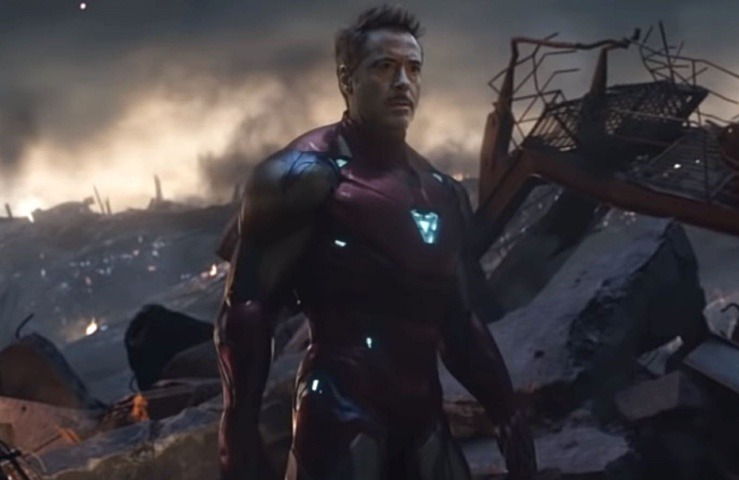
As I said though, it’s hard to be overly critical of Endgame. Because it does so much right: and it’s a film that was probably always more interested in the broad strokes (thematically) than in the details.
You could argue that time-travel as a plot-device to counter Thanos’s population reduction is a cheap, cliched sci-fi trope. And you’d probably be right. But it’s hard to complain when said cheap, cliched sci-fi trope gives us the kind of nostalgia-laden, fan-pleasing sequences that it does: literally inserting our present-day characters back into scenes from previous films.
That stuff was all really fun; and I didn’t think I could even get so much nostalgia feels for films that I don’t even consider to be old. Yet when I watched Tony and co interacting with the events of the first Avengers movie, I felt the rush. The best of these bits, in fact, is Nebula and Rhodey revisting the first Guardians of the Galaxy movie and watching Quill do his impromptu karaoke/Indiana-Jones thing, which was so legit funny.
I mean, how can I be nostalgic for a film that’s barely four years old? But here we are.
What all of that also does is to really make Endgame feel like a love letter to the MCU: literally interacting with all these moments from older films. Indeed the overwhelming sense of Endgame is precisely that: from these revisits to the past and the various call-backs and easter eggs to the climactic sight of all those characters and heroes showing up on the battlefield (a literal roll-call of every significant MCU character), this really feels like the ultimate celebration and love letter to what has been accomplished and established.
The weight of the whole thing is so significant that it really does render you unable to linger too much on the film’s weaknesses or whatever nitpicks you might have with storytelling.
Tony Stark and Steve Rogers both get endings that really work in the context of their respective multi-film sagas. They got the endings they deserved, both of them working really well thematically speaking and in the context of previous films.
Character work is mostly throughout is superb: from the Tony/Nebula material early on, or Tony and Steve coming to terms with each other, to Bruce Banner finally coming to terms with himself and becoming a complete person. Banner/Hulk or ‘Professor Hulk’ is actually one of the best things about this film. Thor works well as both comic-relief and a deconstruction of a hero archetype (and yes, beer-belly Thor is a hilarious gag). Even Natasha gets a prominent, meaningful conclusion to her arc.
In character terms, there are some gripes. Captain Marvel was shortchanged here, playing nowhere near the kind of role I expected was being set up. It’s actually kind of awkward how she’s there very early on (her opening appearance, in space to rescue Tony and Nebula is a terrific moment), but then disappears for the rest of the film – and when she does show up again (albeit, complete with the iconic Carol Danvers haircut now), she actually has the film’s most annoying moments. Also, in character terms, Thanos is a lot less engaging here than he was in Infinity War – which is a shame, though maybe it was inevitable (and we should always be grateful they gave us that more engaging Thanos in the first film).
I also feel like so much focus being on Hawkeye was a little bit distracting – as he was never really that interesting or good a character in this MCU.
But, again, the positives – Tony, Steve, Bruce, Natasha, Thor – probably outweigh the negatives.
It’s also extraordinary how many characters were incorporated into this film: I really wasn’t expecting Peggy Carter or Jarvis, for example, and the biggest shock for me was seeing the Ancient One (Tilda Swinton) appear in a significant way. Tilda Swinton’s character from Doctor Strange is actually one of my absolute favorite characters to appear in the entire MCU – and seeing her show up here was a genuinely happy surprise, particularly as she was worked into the story in a meaningful way.
And there are so many fan-pleasing moments in this movie, so many applause moments: Cap being worthy to lift Thor’s hammer certainly being one of them, while Tony’s immortal line (“I am Iron Man”) as he performs his final, redemptive act of using the infinity stones and clicking his finger might be the most fan-service moment in the history of cinema.
You could argue back and forth about whether ‘fan service’ in general is a good thing or not – but when it’s done like this, appearing as it does in a film like this (a grand ‘finale’ to a massive amount of storytelling), it’s difficult to question it. Hell, we even get ‘Old Man Rogers’ at the end – something I never thought we were going to see.
In fact, possibly my favorite thing in this film was the fact that we got to see just the original three Avengers walking out to face Thanos. The fact that it was just Tony, Steve and Thor really was a perfect writing choice and it had me smiling like an idiot: but what’s so good about this is that it reduces everything back down to the core of the MCU mythology… before snapping back again and having the entire array of MCU characters suddenly show up.
In effect, it is a contraction and then an expansion – the film breathes in (it’s just Tony, Steve and Thor now) and then breathes back out again (and now here’s everyone else).
It’s a terrific, dynamic piece of action storytelling – and, for me, this couple of minutes is the centerpiece of the entire movie, as well as the long-awaited thematic, visual and narrative counterpoint to the events of Infinity War.
It’s difficult to see where the MCU goes from here. For one thing, Robert Downey Jr as Tony Stark is irreplaceable. But that’s a problem for another day.
Endgame does what it set out to do. And, taken together, Infinity War and Endgame really are an epic, rather glorious cinematic entity that might never be equalled in terms of scale, scope or ambition.
Is Endgame perfect? No, definitely not. But, really, do we care at this point?

